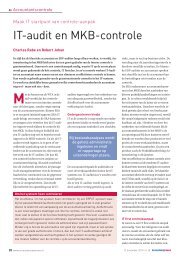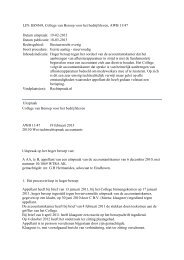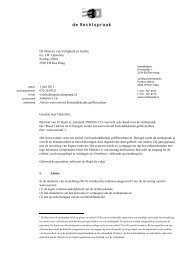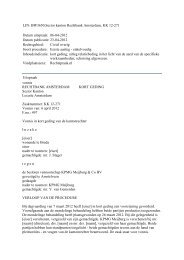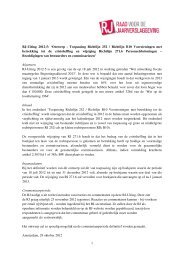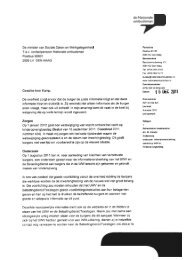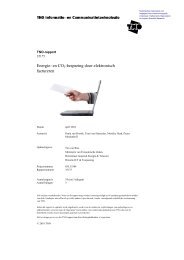Appetite for change - Accountancy Nieuws
Appetite for change - Accountancy Nieuws
Appetite for change - Accountancy Nieuws
Create successful ePaper yourself
Turn your PDF publications into a flip-book with our unique Google optimized e-Paper software.
Businesses have proven through action and investmentthat they are committed to reducing their impacts on theclimate. They are improving energy efficiency, driving downcarbon emissions and seeking out low carbon businessopportunities in an ef<strong>for</strong>t to secure their own futures.The speed of trans<strong>for</strong>mation is increasing, as manyexecutives report pressure from customers, investors andemployees to make their businesses more sustainable.A growing number of businesses expect to be affectedby climate <strong>change</strong>, and they are developing strategies torespond, even though government policies remain uncertain.The results of this survey, combined with larger trends inpolitics and business, suggest some important inputs <strong>for</strong>those strategic calculations.• Political momentum is building <strong>for</strong> carbon-related taxes.Supporters of environmental taxes share the perceptionthat they are a simple and effective policy tool. Therecent announcements of carbon taxes in Ireland andFrance and the revisions to the European Union EnergyTax Directive, currently out <strong>for</strong> consultation, reflect agrowing level of support. If progress slows in the US andat the international level, pressure will also increase ongovernments in Europe and North America to introduceborder taxes in sectors covered by carbon regulations.In response to the growing momentum <strong>for</strong> tax <strong>change</strong>s,businesses are more closely monitoring tax policydevelopments and engaging with policymakers.• There will not be a common global price <strong>for</strong> carbon inthe short to medium term. Emissions trading is viableand popular among participants, especially in the majoremerging economies of India, China and Brazil. But thecreation of a global price is a long-term enterprise. Inthe short and medium term, businesses are appraisinginvestments using a shadow price of carbon thatcovers a range of scenarios and varies <strong>for</strong> differentnational outcomes.Emissions trading is viable andpopular among participants• New regulations and standards are likely. Governmentsare expected to complement market measures withnon-market regulations, such as stricter standards onfuel and energy efficiency in transport, appliances andhomes, and encourage more sustainable practices.Business executives have concerns that such measureswill hinder growth through new costs and inconsistentimplementation. However, they also recognise theeffectiveness of well-designed regulations and are tryingto anticipate how regulations may <strong>change</strong> the competitivelandscape. For example, businesses are looking <strong>for</strong>climate <strong>change</strong> and environmental investments that reducecosts, such as energy efficiency.<strong>Appetite</strong> <strong>for</strong> <strong>change</strong>. PricewaterhouseCoopers. 45



